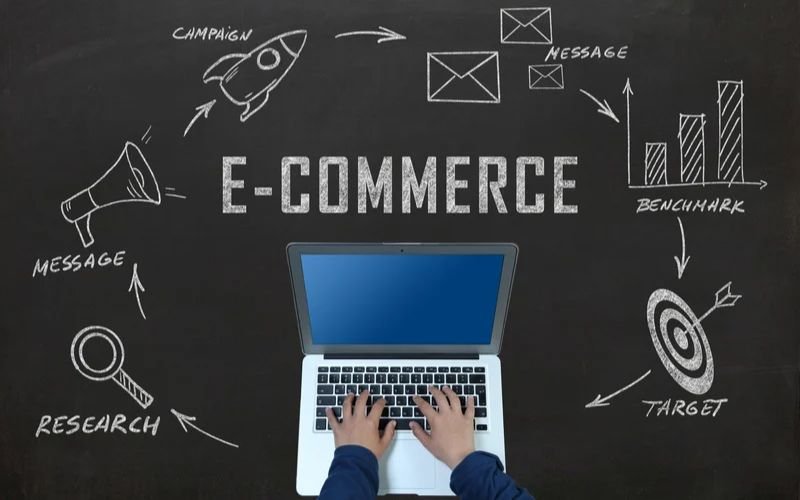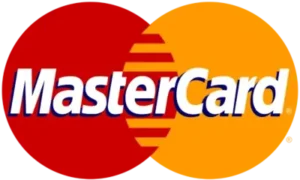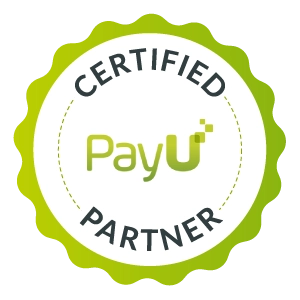Table of Contents
Introduction
With the invasion of the digital age, e-commerce has become a powerful tool that can hold billions of potential consumers who are to buy and sell. A solid, robust and easy to use e-commerce platform has stopped being a luxury in the proliferating online market. It is an essential tool for every business, regardless of its size. But what about those businesses with unique needs for products and offerings that an off-the-shelf e-commerce solution cannot support? A custom e-commerce development company comes into the picture here. Here is a brief on how to find the best custom e-commerce development company.

Challenges in the Selection of an Appropriate Development Partner
Developing an e-commerce platform involves a good strategy and, more so, an efficient development team. Choosing the correct custom e-commerce development company is not a walk in the park. Businesses often deal with the challenge of finding a partner from the hundreds of available options that fit the special needs, budget, and vision of the company.
This in-depth guide will equip you with basic knowledge and tools to be prepared in the selection process—how to land on the right custom e-commerce development company for your business. You will never know how to find the right e-commerce development company if you do not understand what you want for your e-commerce presence. Here are some critical questions to ask:
Business Model and Target Audience:

- Identify the type of business model you have—its classification as either B2B, B2C, or D2C—and who your target customer base may be. Their demographics, shopping habits, and online behaviour will inform the features and functionalities you need to focus on.
Frontend Features and Functionality:
- List down the must-have features that your e-commerce development Company should cater to—for example: product listing, shopping cart, secure payment gateway, user account, order tracking, robust CMS for the product description content, and marketing material. This may also include features that are industry-specific, such as product customization capabilities or subscription management.
Business scalability and future expansion plans:
- What’s down the line? Based on your industry trend, how do you envisage growing your e-commerce business in the future? You wish to associate with a development company that is capable of creating a scalable platform for you, one that can increase in traffic and product volume without losing speed.
Mapping out your needs for varying e-commerce points, touched through the information above, would help you approach development companies with the required capability and background to make this a reality.
With a rough idea of your e-commerce needs, you can move forward and look for some potential partners to develop your respective online store. This can be done through the following ways:
• Online Directories and Review Sites: Always visit some online directories, Clutch, for example, that gives client reviews, Upwork is also an easy domain to discover whether it’s truly a company or not.
• Portfolio Analysis — Expertise and Skills identification. Look at the portfolio of development companies. Look for a company specialized in your business
line, or that completed similar projects regarding features and
functionalities. Review their quality, design sense and UI given with the work.
• Testimonies and Success Stories: Get the case studies along with testimonies of clients from the shortlisted companies. These documents can really help you understand the development process, communication method, and how they deliver projects as per their clients’ requirements during a call or Skype session.
Expertise -> Apart from the experience and portfolio, you must evaluate their technical skills to ensure they are able to deliver a secure & high performing e-commerce development Company or not.
• Development Process and Methodology: Ask from a developer what their development process looks like. This is usually going to be Agile methodologies, which are adaptable and incremental in nature. Inquired about their particular approach to project management, communication and quality assurance.
• Technology Stack and Platform Compatibility: The tech stack that the company employs towards development shall be talked about. Make sure it works with your current infrastructure and any other future integrations you might imagine doing one day. This refers to e-commerce platforms such as Magento, Shopify and WooCommerce, which is in itself a debate on different perspectives.

• Security Guarantees and Data Protection: e-commerce is all about security. Look into the precise safety precautions used by this business in an effort to protect consumer info and lifetime transactions. Steps must comply with industry standards and specifications, such as PCI-DSS.
Effective communication and collaboration are the key to a successful partnership:

This includes the observation of the communication style and availability of the company. Make sure it has a project manager assigned who will be your single point of contact with regard to responding to your questions and problems. This ensures project management tools run smoothly with regards to a project’s progress, deadline, and any bottlenecks that might appear. The transparency here does occur widely.
• Support and Maintenance: Detail the company plans for ongoing support and maintenance. Any e-commerce platform requires updating and security patching quite frequently. Ensure the company has solid support in place post launch for customers.
Negotiating the Contract and Setting Expectations
As soon as you’ll get a few development companies that seem promising, you’ll need to get down to the project’s nitty-gritty:
• Price Quote with Cost Breakdown: Get a detailed price quote from each of the shortlisted companies. The quote should be transparent, showing the development cost and recurrent maintenance fees that one will pay, among other costs.
• Definition of KPI: Devise clear Key Performance Indicators in collaboration with the development company regarding the success of your e-commerce Development Company. This could be metrics like website traffic, conversion rates, average order value, and customer satisfaction.

• Contractual Terms and Service Level Agreements: The contract is a key document that needs to be read before the signature. It should clearly state the project scope, timelines, deliverables, payment terms, ownership of intellectual property, and termination clauses. Negotiate SLAs that ensure certain performance benchmarks.
Making the Final Decision and Building a Long-Term Partnership
The selection of the development partner is not made purely on technical competency or price:
• Cultural Fit and Shared Vision: Look for a development company that has the same work ethics and values as your company. The long-term partnership will only be successful if its parties have a shared vision for the e-commerce development company.
• Building Trust and Confidence in Your Partner: Build trust and rapport with the development team throughout the whole selection process. You will only be able to establish a strong working relationship through open communications and a collaborative approach.
• Sustainable Success through Continuous Communication and Collaboration: An e-commerce platform is an ongoing area of development. The development partner must communicate and continuously collaborate on future improvements and optimizations that will keep the platform up-to-date and relevant in the cutthroat, dynamic world of e-commerce.
Conclusion
Finding the right custom e-commerce development company helps ensure your investment will pay off in the future for your online business. Following these steps from the ultimate guide is going to allow you to make a great choice of development partner armed with appropriate expertise, experience, and collaboration spirit, which can help bring your e-commerce vision to life while fueling your long-term growth.
Bonus Section: Common Mistakes to Avoid
Watch out for the next traps while looking for a development partner:
- Fixation on the price: Yes, cost is the matter to a certain extent, yet never jump to the cheapest possible alternative. The cheapest solution mostly means less quality work and may turn out to be a problem in a long perspective.
- Poor Communication about the Scope of Work: First of all, establish a clearly defined scope of work at the very beginning to avoid any misconceptions that might later lead to scope creep that may in turn increase cost and delay a project.
- Mishandling Security Concerns: Make security a prime concern during development. Search for a partner for whom data security is paramount and follows security practices widely accepted in the industry.

Call to Action
Ready to kick-start your e-commerce journey? Harness all the value from this guide to find the best custom e-commerce development company as your partner and build a thriving online store!
Here are some potential FAQs based on “How to Find the Best Custom E-Commerce Development Company”:
General Questions
- What is custom e-commerce development?
A custom e-commerce platform is a tailored online store built specifically to meet the unique needs of a business, rather than using a pre-built platform.
- Why do I need a custom e-commerce platform?
A custom platform offers greater flexibility, scalability, and control compared to off-the-shelf solutions. It can be tailored to your specific business model and target audience.
- How much does custom e-commerce development cost?
The cost varies depending on the project’s complexity, features, and the development company’s rates. It’s essential to get detailed quotes from multiple providers.
Choosing a Development Company
- How do I find a reputable e-commerce development company?
Research online, read reviews, analyze portfolios, and request references. Consider their experience, expertise, and communication skills.
- What factors should I consider when choosing a e-commerce development company?
Factors include development experience, technology stack, communication skills, project management approach, and pricing.
- Can I hire a freelance developer instead of a company?
While possible, hiring a company often offers more resources, expertise, and project management support.
Development Process
- How long does it take to develop a custom e-commerce platform?
The timeline depends on the project’s complexity. Typically, it can range from several weeks to several months.
- What is the development process like?
The process usually involves requirements gathering, design, development, testing, and launch. Agile methodologies are often used for flexibility.
- What happens after the platform is launched?
Ongoing support, maintenance, and updates are crucial. Choose a company that offers post-launch services.
Additional Questions
- Can I integrate my existing systems with a custom e-commerce platform?
Yes, most development companies can integrate your platform with systems like CRM, ERP, and accounting software.
- What about security and data protection?
A reputable development company will prioritize security measures to protect customer data and comply with industry standards.
- Can I make changes to the platform after launch?
Yes, most custom platforms allow for modifications and enhancements based on your evolving business needs.
E-commerce Platform Features and Functionality
- What essential features should an e-commerce development company have?
A robust platform should include product catalog management, shopping cart, secure checkout, inventory management, order processing, customer management, marketing tools, and analytics.
- What is the difference between a custom e-commerce platform and a hosted platform like Shopify or Magento?
A custom platform offers complete control over design, functionality, and scalability, while hosted platforms provide pre-built solutions with limited customization options.
- Can a custom e-commerce platform be integrated with other business systems?
Yes, most custom platforms can be integrated with various systems like CRM, ERP, and accounting software.
Project Management and Costs
- How involved should I be in the development process?
Your level of involvement depends on your preferences and the development company’s project management style. Most companies offer regular updates and progress reports.
- What are the common payment terms for e-commerce development projects?
Payment terms vary but typically include upfront deposits, milestones, and final payments upon project completion.
- What are the potential risks of hiring an offshore e-commerce development company?
While cost-effective, offshore development can pose challenges in communication, time zone differences, and quality control.
E-commerce Trends and Best Practices
- What are the latest trends in e-commerce?
Stay updated on trends like mobile optimization, personalization, augmented reality, voice commerce, and omnichannel experiences.
- How can I improve my e-commerce website’s conversion rate?
Focus on user experience, clear calls to action, fast loading times, secure checkout, and targeted marketing.
- What is the importance of SEO in e-commerce?
SEO helps improve website visibility in search engine results, drive organic traffic, and increase sales.













